16 Mar 2017 | News and features, Turkey, Turkey Uncensored
[vc_row][vc_column][vc_column_text]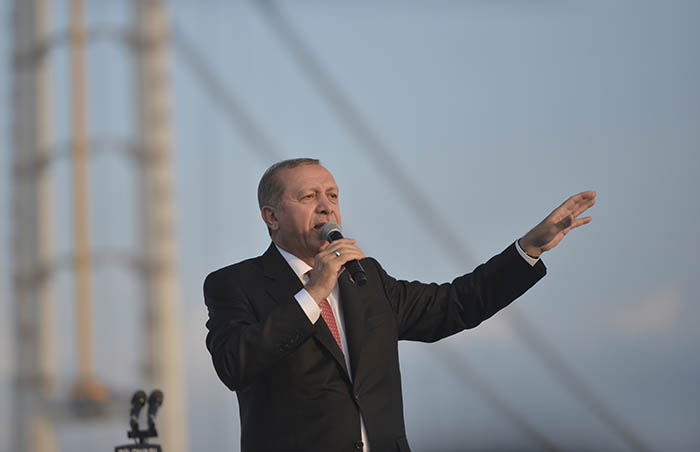
It took me three tries to watch the video, which has since been removed from YouTube by the user. The first pass was simply because it was one of the most popular videos during the latest war of words Europe-Turkey crisis. On the second pass, I got over my initial disgust and watched it fully. The third pass allowed me to step back and think about the question of how its creator is part of a social phenomenon.
In the video, a Turkish man of about 25 or so with an Islamic beard is phoning the Dutch police while proudly telling the viewer what he is up to with a wicked smile. As soon as the call is answered, he begins speaking in Turkish while in the background a friend blares an Ottoman war march from another smartphone. He tells the police: “Get your grannies ready! Because our grandfathers are coming for them!” He does not use the F word. He doesn’t need to. His obscene smile makes that clear.
This man is a fellow citizen of Turkey. As an educated Turk, I am supposed to understand him, even respect him and his point of view. Otherwise I would be categorised as part of the “oppressive, arrogant elite”. He, on the other hand, has no such responsibility. He just is. He’s free to carry on in his chauvinist bubble secure in the righteousness of his cause.
Soon the world might be full of such men and women, who are proud to be vulgar and carrying unleashed banality as a political identity. All over the globe, these individuals claim to be “real people”. If they are the “real”, then anyone who is astonished by their inane antics of this reality show is “unreal”.
Unfortunately, these “real people” like the men in the video have been the social and psychological stronghold of Turkey’s government and President Recep Tayyip Erdogan. They are also the leading actors in the Europe-Turkey crisis playing out on the streets of the continent’s cities. They have become internationally visible due to the demonstrations in The Netherlands and elsewhere. A European citizen who sees such videos and such people may think that these “real people” represent all Turks. They do not.
As a matter of fact, these people simply were not. They did not exist. They were manufactured during the AKP’s time in power. It is as if the concept of shame has been removed from the social lexicon. This loosening of morals has allowed these individuals to become the dominant figures and even role models in society. As the AKP and Erdogan evolved to become borderless, so did their followers.
When the AKP was vying to come to power in 2002, I went on an election tour to meet this new brand of conservative. It was a new social movement — a movement of the righteous, if you will — being born before our eyes. I met local representatives of the party who were usually the most respected figures in their town or neighbourhood. Each of them was exceedingly polite, presentable and moderate in their conservative lifestyle. Although the conventional wisdom had it that these new kids on the block couldn’t possibly pull off an election win, some of us were aware that there was something new in the air and that the political scene would never be the same. Abdullah Gül, an AKP founder and former president was the balanced and well-educated figure who described this young force by saying: “We are the WASPs of Turkey.”
And then it happened. The AKP wasp won the election in a landslide. In my column written after Erdogan’s first, unexpected victory, I wrote:
“Erdogan somehow magically made himself be seen as the underdog and managed to identify himself with the masses. Throughout the election period, he made himself look like he was never allowed to speak by the old guards of the secular regime, which made the voters suffer for and with him. Now he is the winner and we will see for how long he will be able to sustain the role of ‘the sole oppressed’. And we also will have to think what the political answer could be to this spectacle of the fabricated oppressed.”
The column was printed in November 2002. Since then Turkey’s political opposition has struggled to formulate a response to Erdogan’s “underdog politics”. Now he’s playing it on an international stage with much higher stakes.
So if Europeans or Americans are wondering whether or not the argument of the “oppressed and neglected real people are coming to power” farce is sustainable, the answer is it sustained in Turkey for 15 years and still there is no light at the end of the tunnel. For the last fifteen years rebranding the lumpenproletariat as “the real people” in Turkey first legitimised, then exhilarated and finally sanctified all the eccentricities, banality and the ultimate vulgar and now all Europe is watching the spectacle of this fabricated mass. Meanwhile Erdogan, who still is “the man who is not allowed to speak”, is giving endless speeches about how he and his people are silenced.
During the first half of these 15 years, one of the most popular stories circulating on Facebook was about that old cliché: boiling the frog slowly. Before the Turkish and Kurdish opposition were deep fried in prison cells, Erdogan was excelling in making different and sometimes opposite sectors of the social and political spectrum believe that he was actually their man in Ankara. The Kurds fell for it. The liberal democrats fell for it. Some feminists and some LGBT people did as well, not to mention the conservative nouveau riche and radical Islamists.
However, on the day that his second term began in 2007, he was already very clearly hinting at what he would do. In his victory speech on the election night, he said: “All those who did not vote for us are also the colours of this country.” Somehow many intellectuals saw this as an “all-embracing” speech. But I wasn’t. My article on that day infuriated many. From my point of view, Erdogan was making people like me “the embellishment on the plate that could be removed if not wanted”. Somehow, as with the USA today, the masses have a tendency to woolgathering, to think that things cannot be that bad even when the leaders make it crystal clear they actually will be. Yes, that wall could really happen. What’s worse, children could have teachers loyal to Trump’s doctrine, Americans could be glued to Trump TV and neighbours could turn on neighbours for disloyalty.
A country’s leadership sets the tone, but can also penetrate the very fabric of the public’s existence, igniting a metamorphosis that creates political clones. Power doesn’t just stun people but also hypnotises them into becoming little creatures at the command of the leader.
So now I am watching a video produced by my fellow citizen, a Frankenstein monster, who thinks that the idea of our Ottoman grandfathers raping European grandmothers is not only amusing but also a way to educate infidel Westerners. He was just about 10 when the AKP came to power. He grew up imbibing the belief that he could do anything if portrayed himself as the underdog. He thinks that educated people are evil because it has been drilled into his little mind by the political machine. He has been ruthlessly force-fed Turkey’s rewritten history, which is a bizarre combination of the greatness of our illustrious ancestors and how the secular elite paired with Westerners to steal Turkey’s greatness through devilish tricks. He believes that if one man rules the country all the confusion will be gone, Turkey will be great again and everything will be awesome.
Today I wonder what happened to those polite and proper AKP representatives I met in 2002. But more importantly what will happen to these newly fabricated people if — and when — Erdogan is gone? What will happen to these creatures after their creator has left the scene? Will some future leader be trolling through video channels to hunt them down?

Turkey Uncensored is an Index on Censorship project to publish a series of articles from censored Turkish writers, artists and translators.
[/vc_column_text][/vc_column][/vc_row][vc_row][vc_column][vc_basic_grid post_type=”post” max_items=”4″ element_width=”6″ grid_id=”vc_gid:1489681834044-91157d11-36c9-7″ taxonomies=”55″][/vc_column][/vc_row]
6 Mar 2017 | Azerbaijan, Azerbaijan Statements, Campaigns, Campaigns -- Featured, Statements
[vc_row][vc_column][vc_column_text]The undersigned organisations condemn in the strongest possible terms Friday’s sentencing of Mehman Huseynov, Azerbaijani journalist and chairman of the country’s leading freedom of expression group, Institute for Reporters’ Freedom and Safety, to two years in jail on defamation charges. He was taken into custody from the courtroom, without being allowed to speak in his defence.
The 24 organisations are deeply concerned by the continued targeting of Mehman Huseynov and call on the Azerbaijani authorities to immediately and unconditionally release him and all other political prisoners, and to reverse the continuous clampdown on freedom of expression occurring in the country.
“Today’s sentencing and jailing of Mehman Huseynov is outrageous – another example of Azerbaijan’s best and brightest being targeted for expressing opinions critical of the ruling Aliyev regime. It also shows that nothing has changed since the release of a number of high-profile political prisoners last year. The revolving-door policy of politically motivated arrests is still very much in place. Huseynov is now one of at least 13 journalists, bloggers, and media workers jailed in Azerbaijan. They must all be immediately and unconditionally released, in accordance with Azerbaijan’s international obligations”, said Rebecca Vincent, UK Bureau Director for Reporters Without Borders.
Huseynov’s conviction stems from criminal defamation charges in a private case brought by the chief of the police department, related to a report he published in which he wrote about his experience of torture, after he was detained overnight by police in January,
Mehman Huseynov was detained in Baku on 9 January by plain clothed police officers and held incommunicado overnight. Huseynov has reported that while in police custody, police placed a sack over his head and used force against him. He was convicted of disobeying police orders; and although the Court released him on 10 January, he was fined, and continued to face police harassment. The court has imposed a formal travel ban on Huseynov who already has been deprived of his travel documents for the past five years.
”Mehman Huseynov`s case is emblematic of the abusive and arbitrary methods used to punish and attempt to silence human rights defenders, journalists and activists.
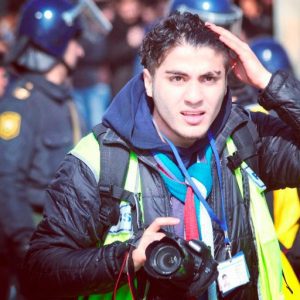
Mehman Huseynov (Twitter)
must be released immediately and unconditionally, he has to have compensation for torture and ill-treatment, and those who are responsible for torture and ill-treatment, regardless of their position, have to be brought to justice. The international community must act, given the continued and increased repression against human rights defenders, journalists and lawyers in Azerbaijan. The dire human rights situation in Azerbaijan deserves the highest attention and action at the Human Rights Council.”, says Florian Irminger, Head of Advocacy, Human Rights House Foundation.
”We are shocked and deeply distressed by this shameful verdict, which is nothing but a mockery of justice. Azerbaijani law-enforcement agencies have earned notorious reputations for using brutal and unlawful interrogation methods. Instead of investigating the credible torture claims, the authorities have chosen to jail the blogger”, says Gulnara Akhundova, Head of Global Response, International Media Support.
Notably, Mehman Huseynov has been critical of the appointment of first lady Mehriban Aliyeva to the post of the Vice President on 21 February 2017.
“Prior to the appointment of first lady Mehriban Aliyeva to the post of the Vice President on 21 February 2017, the Azerbaijani government has pursued a new wave of detentions and harassment of activists, journalists and bloggers, apparently aimed at consolidating the government’s authoritarian rule and preventing any dissent around the controversial appointment.” says Sasha Koulaeva, Head of Eastern Europe-Central Asia Desk, FIDH.
Detentions of Political Opposition
Ahead of the Vice-Presidential appointment, since the amendment was passed in September, authorities have arrested several representatives of the political opposition on false, politically-motivated charges, including ten members of Azerbaijan Popular Front Party, one member of the Republican Alternative Movement (REAL) and one member of the D18 movement.
There are credible allegations of torture and other cruel and degrading treatment of the detainees. For example, Rahim Shaliyev, a REAL Movement member detained on 20 February and subsequently sentenced to 30 days administrative detention on charges of resisting police, reported to his lawyer that he was subject to beatings and humiliation, resulting in an injury to his skull.
Crackdown on media
Journalists have also been subject to arbitrary detention and harassment. On 17 February 2017 Elchin Ismayilli, founder and editor of Kend.info, an on-line news portal known for its reporting on corruption and human rights violations in the Ismayilli region of Azerbaijan, was detained by police. He is accused of threatening a local government employee and has been charged with extortion and abuse of a position of influence. Ismayilli denies all the charges. On 18 February, the Nasimi District Court sentenced Ismayilli to pre-trial detention for an initial period of 24 days. Ismayilli is currently being held in the Kurdakhani pretrial detention centre.
On 22 February, cable TV channels stopped all the authorities officially suspended all broadcasts by the Turkish affiliate of FOX TV, after the channel aired a satirical discussion on the appointment of the new Vice President. A spokesperson for the National Television and Radio Council (NTRC) of Azerbaijan stated that this decision was made at the sole discretion of cable providers; however, anonymous sources within the cable providers have reported that they faced pressure from the NTRC to drop the channel.
At the same time, the authorities have continued their harassment of opposition newspaper Azadliq, which was forced to cease abandon print publication in September 2016, following ongoing financial pressures from state-owned or affiliated companies. In the second half of February 2017, over ten staff members were summoned and interrogated by the Serious Crimes Investigation Department. The publication’s Financial Director, Faiq Amirov, and prominent journalist, Symur Hezi, have been incarcerated on trumped up charges since August 2016 and August 2014, respectively.
Activists expressing critical views on the internet and social media, the last bastion of freedom of expression, have also been subject to police pressure, aimed at forcing them to delete dissenting posts. For example, on 21 February Nisakhanim Valiyeva, the Chair of the Classical Popular Front Party was held in police custody for four hours, the same day that Merhiban Aliyeva was appointed Vice President, and released only after deleting her critical Facebook posts about the appointment.
This has been accompanied by calls for increased regulation of the internet and online content. The chair of the Press Council Aflatun Amashov, whose official mandate is to safeguard independent media and rights of journalists, has submitted a proposal to the Milli Majlis (Parliament), calling for mandatory registration of bloggers and activists, aimed at ensuring greater control over those expressing themselves online.
Harassment of critics in exile
The government of Azerbaijan is also pursuing government critics living in exile abroad. Shortly after giving a speech at the European Parliament on the human rights situation in Azerbaijan on 6 February, Emin Milli, head of Meydan TV, a critical TV channel operating in exile from Berlin, reported to German Police receiving threats of physical violence from the Azerbaijani authorities.
“The Azerbaijani authorities persistently violate freedom of expression and other human rights, both at home and abroad”, said Katie Morris, Head of Europe and Central Asia at ARTICLE 19. “With this happening in their own backyard, European governments can no longer ignore the arrests, torture and harassment of government critics and their families and must call the Azerbaijan government to account”, she added.
Where the authorities are unable to reach their critics, they have sought to harass family remembers remaining in Azerbaijan. Most recently, on the 22nd of February, the brother Dadashov Khanlar and nephew Sabuhi Zanalov of Netherlands-based blogger Ordukhan Teymurkhan, known for his criticism of the Aliyevs, were sentenced to 30 days detention on entirely bogus charges of disobeying police orders.
We, the undersigned organisations, call on the government of Azerbaijan to cease its harassment and detention of government critics. Allegations of torture must be investigated, and all political prisoners must be immediately and unconditionally released.
The relentless campaign waged by the authorities against media workers, bloggers, political activists, civil society and others that are deemed to threaten the power of the ruling regime must stop immediately.
We also call on the international community to exert political pressure and take all the necessary measures until Azerbaijan fully honours its human rights commitments.
ARTICLE 19
CEE Bankwatch Network
Committee to Protect Journalists (CPJ)
Crude Accauntability
Eastern Partnership Civil Society Forum
FIDH – Indernational Federation for Human Rights
Freedom House
Freedom Now
Front Line Defenders
Helsinki Foundation for Human Rights
Human Rights First
Human Rights House Foundation
IFEX
Index on Censorship
International Media Support
International Partnership for Human Rights
Institute for Reporters’ Freedom and Safety
Netherlands Helsinki Committee
Norwegian Helsinki Committee
PEN International
People in Need
Polish Green Network
Reporters Without Borders (RSF)
World Organisation Against Torture (OMCT)[/vc_column_text][vc_row_inner equal_height=”yes” content_placement=”middle” css=”.vc_custom_1488907664556{margin-bottom: 25px !important;background-color: #dd3333 !important;}” el_class=”text_white”][vc_column_inner width=”1/2″][vc_custom_heading text=”Protect Media Freedom” font_container=”tag:p|font_size:28|text_align:left” use_theme_fonts=”yes” link=”url:https%3A%2F%2Fwww.indexoncensorship.org%2Fdefend-media-freedom-donate-index%2F|||”][vc_column_text]
Support Index’s work.
We monitor threats to press freedom, produce an award-winning magazine and publish work by censored writers.[/vc_column_text][/vc_column_inner][vc_column_inner width=”1/2″ css=”.vc_custom_1488907628643{background-image: url(https://www.indexoncensorship.org/wp-content/uploads/2013/08/newspapers.jpg?id=50885) !important;background-position: center !important;background-repeat: no-repeat !important;background-size: cover !important;}”][/vc_column_inner][/vc_row_inner][/vc_column][/vc_row][vc_row][vc_column][vc_basic_grid post_type=”post” max_items=”4″ element_width=”6″ grid_id=”vc_gid:1488907408421-e22a85a0-aabc-5″ taxonomies=”7145″][/vc_column][/vc_row]
20 Feb 2017
[vc_row][vc_column][vc_column_text]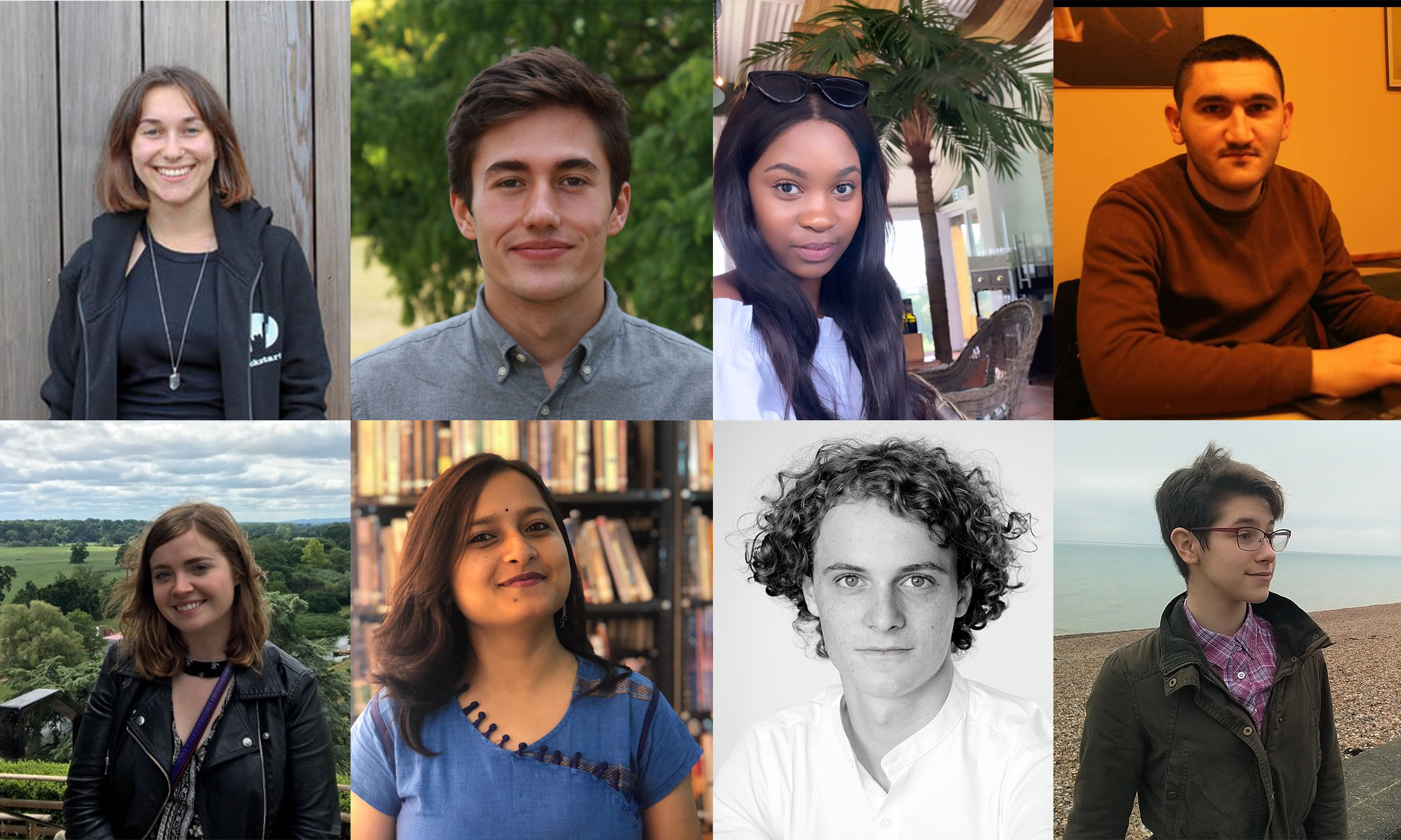 [/vc_column_text][vc_custom_heading text=”Youth Advisory Board” font_container=”tag:h1|text_align:center|color:%230a0a0a” use_theme_fonts=”yes”][vc_column_text]
[/vc_column_text][vc_custom_heading text=”Youth Advisory Board” font_container=”tag:h1|text_align:center|color:%230a0a0a” use_theme_fonts=”yes”][vc_column_text]
The youth advisory board is Index on Censorship’s project aimed at engaging with young people aged 16-25 from around the world and gathering their views on freedom of expression issues.
What is the youth advisory board?
The youth board is a specially selected group of young people aged 16-25 who advise and inform Index on Censorship’s work, support our ambition to fight for free expression around the world and ensure our engagement with issues with tomorrow’s leaders. The current members are sitting from January to June 2020.
Why does Index have a youth board?
Index on Censorship is committed to fighting censorship not only now, but also in future generations, and we want to ensure that the realities and challenges experienced by young people in today’s world are properly reflected in our work.
Index is also aware that there are many who would like to commit some or all of their professional lives to fight for human rights and the youth board is our way of supporting the broadest range of young people to develop their voice, find paths to freely expressing it and potential future employment in the human rights, media, and arts sectors.[/vc_column_text][/vc_column][/vc_row][vc_row disable_element=”yes”][vc_column][vc_column_text css_animation=”none”]
Applications now open!
We are looking for enthusiastic young people, aged between 16-25, who must be committed to taking part in monthly meetings, which are held online with fellow participants. Applicants can be based anywhere in the world. We are looking for people who are communicative and who will be in regular touch with Index.
Each youth advisory board sits for six months, has the chance to participate in monthly video conferencing discussions about current freedom of expression issues from around the world, which sometimes include guest speakers. There are exciting opportunities to be interviewed for the podcast and contribute to Index’s Instagram page.
The next youth board is currently being recruited, and will sit from July to December 2020.
How to apply
Please send us the following:
- Cover letter
- CV
- A 250-word blog post about any free speech issue
Applications can be submitted to Orna Herr at [email protected]. The deadline for applications is 26 July at 11:59pm GMT.
What is the youth advisory board?
The youth board is a specially selected group of young people aged 16-25 who advise and inform Index on Censorship’s work, support our ambition to fight for free expression around the world and ensure our engagement with issues with tomorrow’s leaders. The current members are sitting from July to December 2019.
Why does Index have a youth board?
Index on Censorship is committed to fighting censorship not only now, but also in future generations, and we want to ensure that the realities and challenges experienced by young people in today’s world are properly reflected in our work.
Index is also aware that there are many who would like to commit some or all of their professional lives to fight for human rights and the youth board is our way of supporting the broadest range of young people to develop their voice, find paths to freely expressing it and potential future employment in the human rights, media, and arts sectors.[/vc_column_text][vc_row_inner disable_element=”yes”][vc_column_inner width=”1/4″][staff name=”Shini Wang” title=”USA” profile_image=”108370″]Shini Wang is a poet, journalist, and BA student of philosophy at the University of Texas at Austin. She is a member of her university’s liberal arts council, the editor of The Liberator Magazine, and a host of open discussions on campus. Interested in how freedom of expression plays into the creative and imaginative process of international writers and artists who witness injustice, her research investigates censorship and its effects during our post-truth political era.[/staff][/vc_column_inner][vc_column_inner width=”1/4″][staff name=”Nikhil Singh” title=”India” profile_image=”108371″]Nikhil Singh is a law student based in Kolkata, India. He has a keen interest in advocating the right to free speech and often spends his free time promoting it. In the past he has interned with senior advocates in the Supreme Court of India, and has worked on cases involving violation of the right to free speech, civil liberty, and human rights. After graduating from college, Singh intends to work in the legal industry, to fight for people’s rights.[/staff][/vc_column_inner][vc_column_inner width=”1/4″][staff name=”Charles Terroille” title=”France” profile_image=”108373″]Charles Terroille is a French dual degree student in political science and international relations at Sciences Po (Lille) and the University of Kent. His field of work covers media and journalism. After directing his first TV documentary about Dharavi in India at 16 years old, he continued to report in different types of newsrooms in France and the UK. Terroille also specialises in the issue of whistleblowers and has worked on the Luxleaks and Football Leaks cases. He collaborated with the Signals Network Foundation for advocacy and research on the leaks. Terroille is also the founder and director of the International Consortium of Student Journalism (ICSJ).[/staff][/vc_column_inner][vc_column_inner width=”1/4″][staff name=”Emma Quaedvlieg” title=”Serbia” profile_image=”104865″]Emma Quaedvlieg is a Master’s graduate from the Institute of Development Studies, where she focused on popular movements and inequality. She also holds a BA (Hons) in politics and international relations from the University of Nottingham. She has actively campaigned for various gender issues and was elected women’s officer for the student’s union in Nottingham. Her research largely focuses on the western Balkans, where she is contributing to freedom of expression and wider development in local government. Quaedvlieg has also worked in various (international) human rights organisations.[/staff][/vc_column_inner][/vc_row_inner][vc_row_inner disable_element=”yes”][vc_column_inner width=”1/4″][staff name=”Arpitha Desai” title=”India” profile_image=”104862″]Arpitha Desai is a lawyer based in New Delhi, India. As an avid student of constitutional law, she is passionate about civil liberties with a keen interest in censorship, surveillance, and digital rights. Keeping in mind the ever-evolving nature of technology and the needs of the government, industry, and common man, Desai believes that law and policy must strike a holistic balance between conflicting rights.[/staff][/vc_column_inner][vc_column_inner width=”1/4″][staff name=”Krzysztof Katkowski” title=”Poland” profile_image=”108374″]Krzysztof Katkowski is a student of Czacki High School in Warsaw. He is a young activist and journalist cooperating with “Krytyka Polityczna” where he focuses on youth’s community-minded engagement and education. Passionate about science, literature, and philosophy, he wants to popularise the idea of free speech and dialogue between different environments. In the future, Katkowski wants to fight for open society and tolerance which is endangered in recent years, especially in Poland.[/staff][/vc_column_inner][vc_column_inner width=”1/4″][staff name=”Elyse Popplewell” title=”Australia” profile_image=”108372″]Elyse Popplewell is the social media editor at The Australian, the most widely circulated national newspaper in Australia. After attaining a bachelor of communications (journalism) at the University of Technology, Sydney, she began her career at the Institute for Economics & Peace, the think tank that publishes the Global Peace Index annually. Popplewell focuses on the issue of Australian defamation laws gagging important journalism and movements like #MeToo.[/staff][/vc_column_inner][vc_column_inner width=”1/4″][/vc_column_inner][/vc_row_inner][/vc_column][/vc_row][vc_row disable_element=”yes”][vc_column][three_column_post title=”Recent posts” full_width_heading=”true” category_id=”6514″][/vc_column][/vc_row][vc_row][vc_column][vc_column_text]
Meet the Board
The current board is sitting from July to December 2020.[/vc_column_text][vc_row_inner][vc_column_inner width=”1/4″][staff name=”Aliyah Kaitlyn Orr” profile_image=”112187″]Aliyah Kaitlyn Orr (pen name A.K. Nephtali) is a college student in Britain. Orr has been inspired by the power of words ever since a novel helped them realise their gender-neutral identity. Orr writes inclusive fiction that aims to empower LGBTQ+ people around the world. One of their short stories will be published in a digital anthology by the end of 2020. [/staff][/vc_column_inner][vc_column_inner width=”1/4″][staff name=”Subhan Hasanli” profile_image=”114478″]Subhan Hasanli is a 25 year old lawyer, who works with local and international human rights organisations in Azerbaijan. He holds a bachelor’s degree in law from Nakhichevan State University. His goal is to promote the rule of law and human rights, and he hopes to achieve changes in these fields. Hasanli’s hobbies include catching fish, playing chess and reading books about science, politics, and philosophy. His favourite book is Diplomacy by Henry Kissinger. [/staff][/vc_column_inner][vc_column_inner width=”1/4″][staff name=”Carmen Ferri” profile_image=”114479″]Carmen Ferri is a digital rights activist based in Canada. She obtained an undergraduate degree in cultural studies and sociology at Maastricht University, Netherlands, and a master’s degree from the University of Amsterdam in new media and digital culture. During her studies, she worked on projects related to disinformation, hate speech and subcultural expression on digital platforms. Ferri has completed two internships with the Association for Progressive Communications. She worked as a policy analyst intern researching counter-hate speech movements in Asia, then as a communications research intern where she implemented a project examining actors and discourses within digital rights spaces on social media.[/staff][/vc_column_inner][vc_column_inner width=”1/4″][staff name=”Sneha” profile_image=”114480″]Sneha graduated from the Asian College of Journalism with a postgraduate diploma in journalism (new media) and is now a journalist for The Times of India. She previously worked as a reporter for the International Business Times. Sneha is concerned about the issues around press freedom in her country. She is an advocate for open discourse in the hope that it will lead to solutions. Sneha has an avid interest in governance, ecology, environment and urban planning.[/staff][/vc_column_inner][/vc_row_inner][/vc_column][/vc_row][vc_row][vc_column width=”1/4″][staff name=”Pablo Aguera” profile_image=”114481″]Pablo Aguera is a research fellow for Research ICT Africa working on digital rights, data justice and internet access and use. Aguera has produced creative multimedia projects and worked with social enterprises and youth movements across multiple countries. He holds a BSc in philosophy, politics and economics from the University of Warwick, and is currently completing a dual master’s degree in global media and communications at the London School of Economics and the University of Cape Town.
[/staff][/vc_column][vc_column width=”1/4″][staff name=”Siphesihle Fali” profile_image=”114482″]Siphesihle Fali is in her final year studying English literature & language, and media and writing at the University of Cape Town, South Africa. Fali is passionate about expanding her knowledge on societal constructs and the definitions of freedom. She aspires to create real conversations around the right to freedom of expression for the most censored and vulnerable communities, to safeguard and protect their rights. Fali’s interests lie mostly with the rights of women and children, and she intends on dedicating her career to being a voice for those who are denied one.[/staff][/vc_column][vc_column width=”1/4″][staff name=”Claes Kirkeby Theilgaard” profile_image=”114483″]Claes Kirkeby Theilgaard works as the editor-in-chief of the Danish online newspaper 180Grader. He is set to begin his studies in business and communications at the Copenhagen Business School. Theilgaard has worked in journalism and in various political organisations with the aim of furthering democracy and freedom, which has resulted in violent threats and other forms of intimidation. These experiences have made him more motivated to fight for the cause of free speech. Theilgaard is currently working to launch a campaign against “hate speech” laws in Denmark, as well as an organisation to fight censorship and work for free speech both in Denmark and abroad.[/staff][/vc_column][vc_column width=”1/4″][staff name=”Cecily Donovan” profile_image=”114484″]Cecily Donovan graduated from Boston University with degrees in International Relations and Political Science in 2019. She currently lives in New York City working in economic development for Invest Northern Ireland, a UK government agency. She has a background in state government, French language and politics, and European affairs. Donovan is passionate about women’s rights, LGBTQ+ rights, the Black Lives Matter movement and the impact of authoritarianism on freedom of expression globally.
[/staff][/vc_column][/vc_row]
9 Feb 2017 | Mapping Media Freedom, News and features, Youth Board
[vc_row][vc_column][vc_column_text]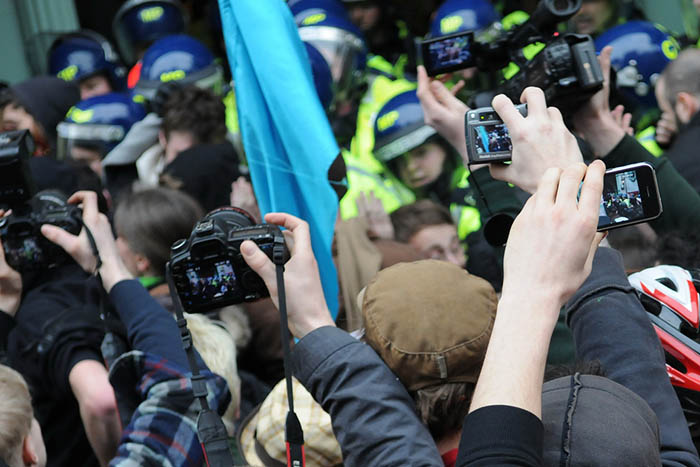
To highlight the most pressing concerns for press freedom in Europe in 2017, members Index’s outgoing youth board review the year gone by with some of our Mapping Media Freedom correspondents.
Youth board member Sophia Smith Galer, from the UK, spoke to Ilcho Cvetanoski, Mapping Media Freedom correspondent for Croatia, Montenegro, Bosnia and Macedonia.
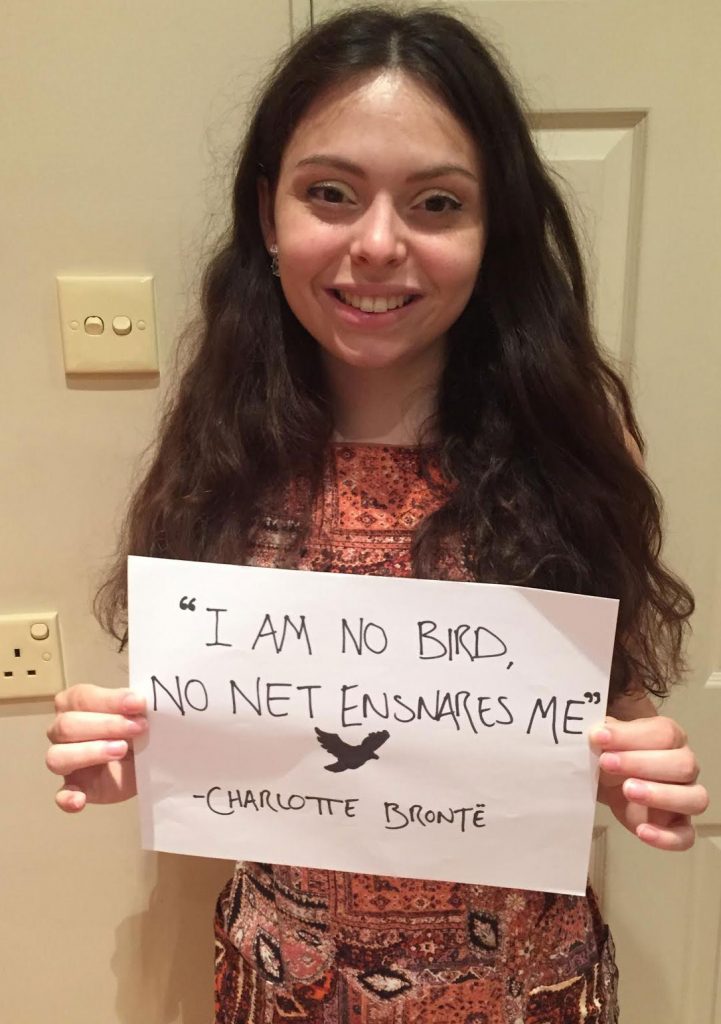 According to Cvetanoski, a lot has improved in the region over the last 15 years. The era during which journalists were targeted and killed is long passed, but the media is still dogged by censorship and political divides. In fact, journalists are regularly threatened and vilified by political elites, often denounced as foreign mercenaries, spies and traitors. Cvetanoski reports that this has led to “physical threats, the atmosphere of impunity, media ownership and also verbal attacks amongst the journalists themselves”. He notes that techniques pressuring journalists have changed from “blatant physical assaults to more subtle ones”.
According to Cvetanoski, a lot has improved in the region over the last 15 years. The era during which journalists were targeted and killed is long passed, but the media is still dogged by censorship and political divides. In fact, journalists are regularly threatened and vilified by political elites, often denounced as foreign mercenaries, spies and traitors. Cvetanoski reports that this has led to “physical threats, the atmosphere of impunity, media ownership and also verbal attacks amongst the journalists themselves”. He notes that techniques pressuring journalists have changed from “blatant physical assaults to more subtle ones”.
The breaking up of the former Yugoslavia has undoubtedly been a historical burden on Bosnia and Herzegovina and Croatia. Cvetanoski describes this legacy as having left “deep scars in every aspect of the people’s lives, including the lives and the work of journalists”. Media workers are still remembered as having once been tools of the state. Nowadays, the opposite is happening; they’re being criticised by political elites as enemies of the state simply for scrutinising politicians’ behaviour.
It’s unsurprising that this has left many journalists in the region politicised, undermining professionalism and trust in the media. Conservative politicians court sympathisers in the media so that they can manipulate the angle and content of stories that are run. The fact that journalist salaries are low and that the economic situation is poor overall further imperils journalistic integrity in the face of bribes.
If the situation remains as it is – with limited and highly controlled sources for financing the media, a poor political culture and low media literacy among citizens – then Cvetanoski holds little hope for the future of press freedom in the region. News consumers aren’t equipped with the literacy levels to distinguish between professional versus sensational journalism, nor are the sources of media funding transparent or appropriate. “In this deadlock democracy, the first victims are the citizens who lack quality information to make decisions.”
Mapping Media Freedom is helping to change this. Making journalists feel less alone and offering a space for them to report threats to press freedom ensures that the hope for a free press throughout Europe is kept alive.
The youth board’s Constantin Eckner, from Germany, spoke with Zoltán Sipos, the MMF correspondent for Hungary, Romania and Bulgaria.
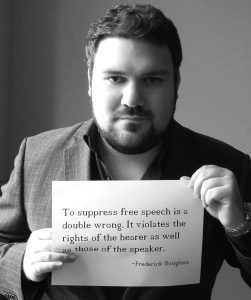 As MMF illustrates, journalists in all three countries have to deal with constant pressure from authorities and various degrees of censorship. In 2016, 42 incidents were reported in Hungary, 21 in Romania and 7 in Bulgaria.
As MMF illustrates, journalists in all three countries have to deal with constant pressure from authorities and various degrees of censorship. In 2016, 42 incidents were reported in Hungary, 21 in Romania and 7 in Bulgaria.
Index on Censorship’s regional correspondent Zoltán Sipos, who is also the founder and editor of Romania’s investigative outlet Átlátszó Erdély, points out that the Hungarian government and its allies within the country follow a sophisticated plan to neutralise critical media outlets. Several newspapers that struggled financially have been purchased by rich business people or media moguls in recent history. “Just like in regards to any other part of society, prime minister Viktor Orbán seeks for a centralisation of the media industry,” Sipos says.
Yet, instead of simply controlling the media, Orbán and the reigning party Fidesz intend to use established outlets and broadcasters to construct narratives in favour of their agendas. Only a handful of independent outlets remain in Hungary.
In November 2016, Class FM, Hungary’s most popular commercial radio channel, was taken off the air. The Media Council of Hungaryʼs National Media refused to renew its licence as Class FM was owned by Hungarian oligarch Lajos Simicska, whose outlets became very critical towards the government after a quarrel between him and Orbán.
The authorities in Romania and Bulgaria might not follow a well-wrought plan, but the situation for critical journalists is as severe. “The main problem is that most outlets can’t generate enough revenue from the market,” Sipos explains. “These outlets found themselves under constant pressure, as powerful business people are willing to purchase them and use them to promote their own political agendas.” Ultimately, this issue leads to the demise of independent reporting and weakens voices critical of the ruling parties and influential political players.
Sipos concludes that “these three countries have little to no tradition of independent journalism.” Although death threats towards, or even violence against journalists do not exist, the working conditions for critical reporters are difficult.
He recommends the investigative outlets Bivol.bg from Bulgaria, atlatszo.hu and Direkt36.hu from Hungary as well as RISE Project and Casa Jurnalistului from Romania as bastions of independent journalism. A few mainstream outlets that conduct critical reporting are 444.hu, index.hu, HotNews.ro and Digi24.
Layli Foroudi, a youth board member from the UK, interviewed Mitra Nazar, MMF correspondent for Serbia, Kosovo, Slovenia and the Netherlands.
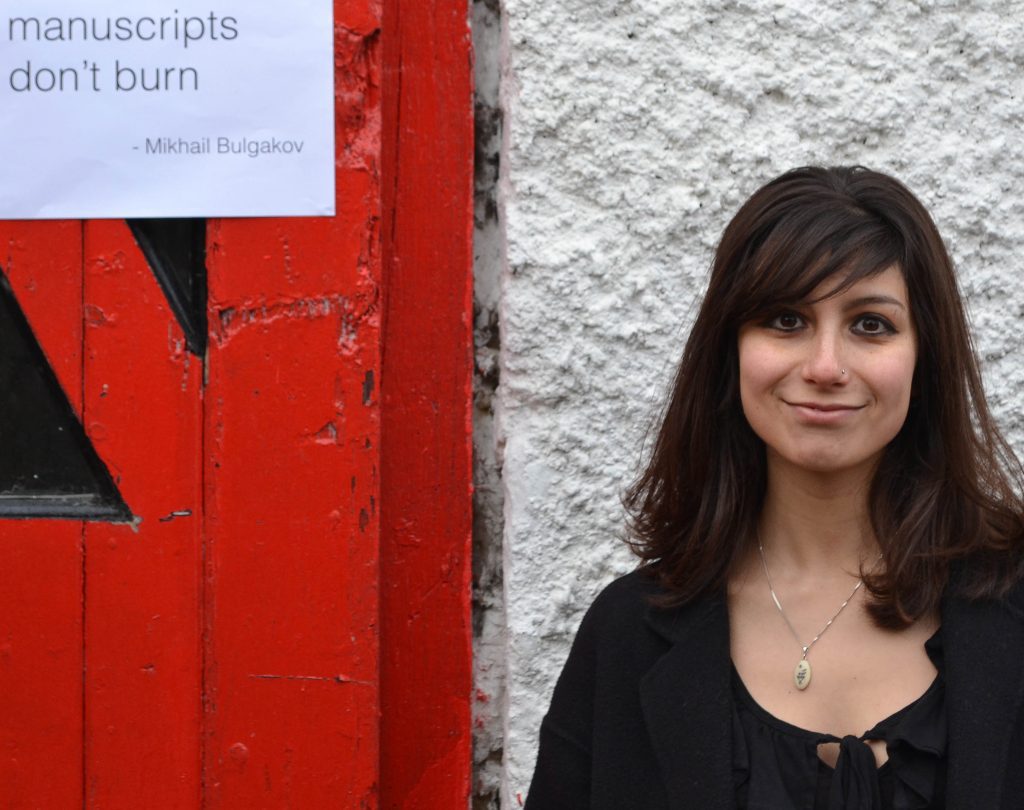 A Dutch national based in Belgrade, Serbia and the Netherlands are Nazar’s natural beats, and she also monitors media freedom in the nearby Balkan states of Slovenia and Kosovo.
A Dutch national based in Belgrade, Serbia and the Netherlands are Nazar’s natural beats, and she also monitors media freedom in the nearby Balkan states of Slovenia and Kosovo.
This year, Serbia has been the most intense of the four countries to cover. Serbian journalists have been subject to physical attacks and the government has maintained a smear campaign against independent media outlets in the country.
“This is a very organised campaign,” explains Nazar, “they’re being called foreign spies and foreign mercenaries.”
The “foreign spy” accusation has a real effect on the personal safety of journalists, whose pictures are often published alongside such accusations in the pro-government media. Nazar, who wrote a feature on the subject, says that this can cause such journalists to be branded as unpatriotic and anti-Serbian: “When the government accuses journalists of being “foreign spies”, it gives the impression that these independent journalists are against Serbia as a country.”
The ruling party of Serbia even went so far as to organise a touring exhibition called Uncensored Lies, where the work of independent media was parodied in an attempt to prove that the government does not censor, however, the exhibition also served to discredit these publications by calling the content “lies”.
“Can you imagine the ruling party organises an exhibition discrediting independent media,” says Nazar, shocked, “this is not indirect censorship, it is directly from the government.”
The media landscape in the Netherlands does not experience direct state-sponsored censorship, but there are other challenges. The Netherlands ranks 2nd in the 2016 RSF World Press Freedom Index, but Nazar has still reported a total of 49 incidents since the Mapping Media Freedom project started, from police aggression against journalists, to assaults on reporters during demonstrations, to broadcasters being denied access to public meetings.
For 2017, she is interested in looking into how the Dutch media deals with the rise of the far right and a growing anti-immigrant sentiment, especially in the upcoming elections which will see controversial far-right candidate Geert Wilders stand for office.
Last year, a Dutch tabloid De Telegraaf published an article about the arrival of refugees to the Netherlands with a sensational headline that generated a lot of debate in the Dutch media, which Nazar says is becoming increasingly politicised and polarised.
For Nazar, there is a line to be drawn with what legacy media outlets should and should not publish. “That line is representing and following the facts,” she says, “if you publish a headline that says there is a “migrant plague”, that is beyond facts – it is a political agenda.”
The youth board’s Ian Morse, from the USA, interviewed Vitalii Atanasov, the MMF correspondent for Ukraine.
In just the past two months in Ukraine, journalists have been assaulted, TV stations have been banned and governments on both sides of the country’s conflict with Russia have sought to limit public information and attack those who publicise.
Vitalii Atanasov is the correspondent who reported these incidents to the Mapping Media Freedom project. Drawing on sources from individual journalists to large NGOs, Atanasov monitors violations of media plurality and freedom in Ukraine for the project. To verify a story, he sometimes contacts media professionals directly, or crowdsources through social media, as he finds that all journalists publicise cases of violation of their rights, attacks, and incidents of violence.
“Some cases are complicated, and the information about them is very contradictory,” Atanasov tells Index. “So I’m trying to trace the background of the conflict that led to the violation of freedom of expression and media.”
Many of the violations that occur in Ukraine are either individual attacks on media workers by separatists in the east or Ukrainian officials attempting to control the media through regulation and licensing.
Of about a dozen and a half reports since he began working with MMF, Atanasov says many reports stick out, such as the “blatant” attempts of authorities to influence the work of major TV channels such as Inter and 1+1 channels. Most recently, Ukraine banned the independent Russian station Dozhd from broadcasting in Ukraine. While TV has recently been the target, problems with media freedom have come from almost everywhere.
“The sources of these threats can be very different,” Atanasov says, “for example, representatives of the authorities, the police, intelligence agencies, politicians, private businesses, third parties, criminals, and even ordinary citizens.”
Atanasov and MMF build off the work of other groups working in Ukraine, such as the Institute of Mass information, Human Rights Information Center, Detector Media, and Telekritika.ua.
Click on the bubbles to view reports or double-click to zoom in on specific regions. The full site can be accessed at https://mappingmediafreedom.org/
[/vc_column_text][/vc_column][/vc_row][vc_row][vc_column][vc_basic_grid post_type=”post” max_items=”4″ element_width=”6″ grid_id=”vc_gid:1486659943480-96bea7cd-9879-6″ taxonomies=”6514, 6564″][/vc_column][/vc_row]




 [/vc_column_text][vc_custom_heading text=”Youth Advisory Board” font_container=”tag:h1|text_align:center|color:%230a0a0a” use_theme_fonts=”yes”][vc_column_text]
[/vc_column_text][vc_custom_heading text=”Youth Advisory Board” font_container=”tag:h1|text_align:center|color:%230a0a0a” use_theme_fonts=”yes”][vc_column_text]
 According to Cvetanoski, a lot has improved in the region over the last 15 years. The era during which journalists were targeted and killed is long passed, but the media is still dogged by censorship and political divides. In fact, journalists are regularly threatened and vilified by political elites, often denounced as foreign mercenaries, spies and traitors. Cvetanoski reports that this has led to “physical threats, the atmosphere of impunity, media ownership and also verbal attacks amongst the journalists themselves”. He notes that techniques pressuring journalists have changed from “blatant physical assaults to more subtle ones”.
According to Cvetanoski, a lot has improved in the region over the last 15 years. The era during which journalists were targeted and killed is long passed, but the media is still dogged by censorship and political divides. In fact, journalists are regularly threatened and vilified by political elites, often denounced as foreign mercenaries, spies and traitors. Cvetanoski reports that this has led to “physical threats, the atmosphere of impunity, media ownership and also verbal attacks amongst the journalists themselves”. He notes that techniques pressuring journalists have changed from “blatant physical assaults to more subtle ones”. As MMF illustrates, journalists in all three countries have to deal with constant pressure from authorities and various degrees of censorship. In 2016, 42 incidents were reported in Hungary, 21 in Romania and 7 in Bulgaria.
As MMF illustrates, journalists in all three countries have to deal with constant pressure from authorities and various degrees of censorship. In 2016, 42 incidents were reported in Hungary, 21 in Romania and 7 in Bulgaria. A Dutch national based in Belgrade, Serbia and the Netherlands are Nazar’s natural beats, and she also monitors media freedom in the nearby Balkan states of Slovenia and Kosovo.
A Dutch national based in Belgrade, Serbia and the Netherlands are Nazar’s natural beats, and she also monitors media freedom in the nearby Balkan states of Slovenia and Kosovo.